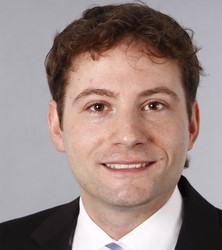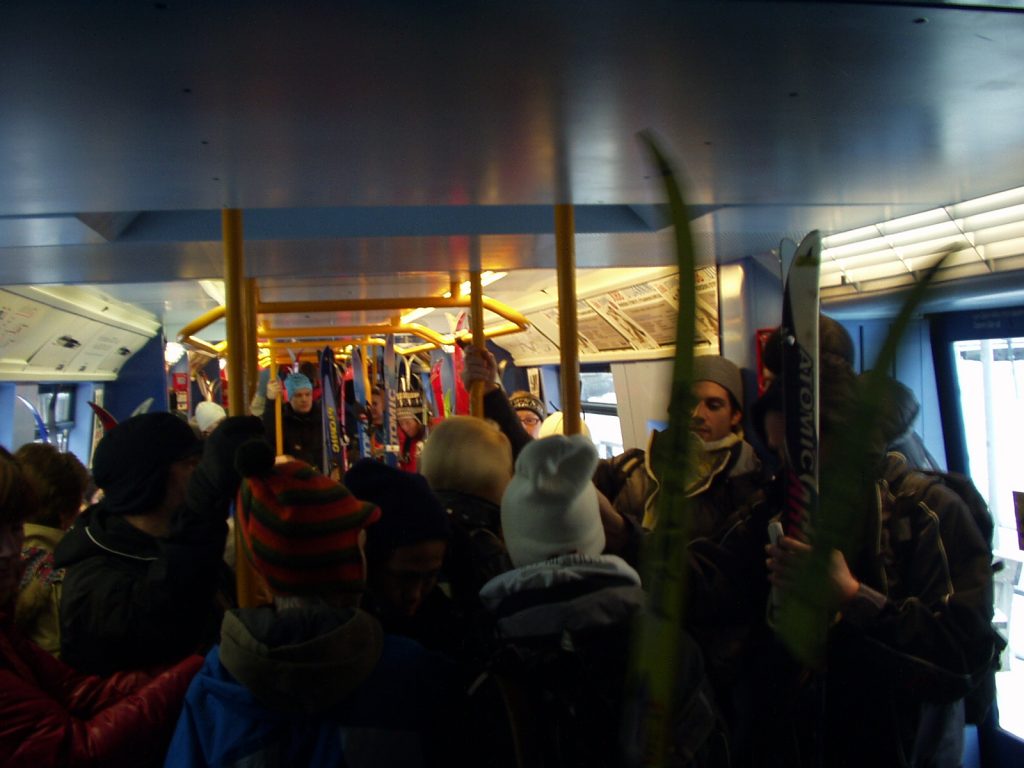
Dario Struwe is an in-house lawyer at Volkswagen AG in Wolfsburg and 13th year EULISP graduate with a semester abroad at the Universitetet i Olso, Norway.
16.07.2021 – Interview
Dear Dario, what was your original motivation to enroll in the EULISP study program in Hanover?
Well, I studied in Hanover and had already heard the first lectures on legal informatics and in particular experienced the lectures by Prof. Dr. Nikolaus Forgó. The way he presented the material was of course much more lively and different from the classic frontal teaching with overhead transparencies. I’ve always liked this style and the interactive aspect, as well as the subject matter. I’m simply a technophile. I’m also a smart home kind of guy and all that stuff. I’m an Alexa beta tester and so I thought it was good to be able to combine the law with this – I’ll say something “nerdy” – and then also do this interactive, more workshop-like program. It was just the right mix for me.
Were there any projects or seminars from the EULISP that particularly stuck in your memory?
I remember Prof. Benno Heussen. He did contract negotiations. It was more of a soft skills event that was structured like a small moot court. I also found it very appealing at the time that on the one hand you had the classical professors, but on the other hand you also had the practitioners. That’s one of the things I notice now in my daily work after a normal law degree. When you work in a law firm or as an in-house lawyer, you can no longer do anything with many things. You hardly ever do public law and criminal law, and I haven’t looked at civil law, for example property law, for ages. The practical lectures, for example the block seminar on contract design, were good preparation for professional life. But copyright law was also prepared in a practical way. At that time, Prof. Axel Metzger was in charge of this course. These lectures have remained very much in my memory.
Looking back, how would you assess the international, English-language EULISP focus in European law? Do you still have many points of contact in practice?
In my EULISP year, many lectures were still in German and not yet quite so European-oriented – at least in Hanover. In Oslo, everything was completely based on the relevant EU directives and regulations, but in Germany there was still a lot of national law, always with European references, but really still more nationally oriented. But in my daily work, I really have to say that the LL.M. simply has huge advantages, for example in the area of data protection. You can’t get by anywhere without data protection anymore. Anyone can listen to collective labor law during their studies, but almost no one will do that later. Data protection law, on the other hand, is continuously relevant, including general contract law, whether it’s arbitration clauses or liability clauses. These are the things that I really do on a daily basis, and they also came up in the EULISP, because you had a lot of practitioners as lecturers who showed you what a typical license agreement looks like, what the model is like, and what the structure behind it is.
Why did you choose Oslo and the partner university there for the second EULISP semester?
So once, because we were the first cohort to be able to complete the double-degree program. That was an incentive, of course. At the same time, this part of the program was sponsored by the DAAD, which was equivalent to a scholarship. What was also crucial for me is that you could do everything in English. For me, only English-speaking universities came into consideration anyway. London was very expensive, the tuition alone was about 4,000 euros, not to mention the cost of accommodation. And so I made my choice between Stockholm and Oslo. Regarding Stockholm, I had talked to previous EULISP students and they said that the teaching there was very technical and it was, for example, about how a LAN is built and so on. That was not what I really wanted to do. I found Oslo much more interesting, because there was, as I said, the DAAD scholarship and what I also found super, a dormitory guarantee. So all in all, Oslo was a very good package.
When you think back now to your studies in Oslo, how did they differ from what you did before in Hannover in the first EULISP semester?
I had exactly two courses in Oslo. One course dealt intensively with consumer protection law or e-commerce law and the other course was data protection law with Prof. Lee Bygrave, who still teaches in Oslo. The courses were of a high level. Especially Prof. Bygrave was very good. Compared to Hannover, it was perhaps a bit less interactive and required more self-study, for example in the form of reading lists.
Regardless of the subject matter, how did you remember your semester abroad and do you have any recommendations for excursions or actions that are particularly good to do in Oslo?
I have very good memories of the time in Oslo and it was super fun. We also had enough free time and a great international group. We did a lot of things together and because everyone lived in the dormitory, we were relatively close together. That was a huge advantage and the student council once organized a trip to Bergen and one to a ski lodge (cabin trip). What one must be clear only before, in Norway the beer price is somewhere with eight euros. So great party making, was not there. So it was again so right student life, because you just did not go “external” party because it was much too expensive.

Aussicht von der Blockhütte 
In der T-Banen auf dem Weg zum Skifahren
Finally, do you perhaps have an insider tip for living in Oslo, for future Eulispians?
What I really liked was that there was always Freezy Friday. There is near Oslo – you can also get there with the T-bane – a ski resort and there you could go as a student, for thirty-five euros at the time, very cheap downhill skiing. This always included a day pass on Fridays, including ski rental. That was really great, that one simply sat down half an hour in the public transport and was in the skiing area. And then to be able to ski in the evening with the slopes lit up – an absolute dream! In general, I really liked the Norwegians’ closeness to nature and sports.
That’s a really good insider tip. Were you influenced by the EULISP when choosing your traineeship and later when starting your career?
Well, first I did my doctorate. After that, during my legal clerkship, I was actually at the district court in a chamber that did a lot of copyright litigation. During my administrative internship, I decided to go to the Federal Cartel Office in Bonn and worked there in the IT department. At that time, it was still called the EDP department. During my legal internship, I worked in an IT boutique, where I then started working as a lawyer in Frankfurt after my legal clerkship. There, I was mainly involved in large-scale IT projects and IT carve-outs, which always sounds spectacular, but of course also requires a lot of due diligence work. Finally, I had my first child, and somehow working through the immense workload on a permanent basis was no longer quite so family-compatible. So I looked around for an alternative career where I could continue to do IT law at a high level and quickly found a medium-sized law firm that focused on advising Microsoft, Adobe and banks – where I could work from the other side. And what was also great was that I was allowed to complete a one-year secondment at both Microsoft and later at ING-DiBa. That gave me a chance to see a little bit how a corporate lawyer works.
Meanwhile, at VW, you’re working in the automotive industry, which is in the midst of a digital transformation. Many technicians may not necessarily be familiar with the legal issues involved. Have you found that your EULISP background helps you connect better with the scientists?
Totally. However, I believe that this is not directly due to the EULISP, but perhaps also to the type of lawyers who are attracted to the EULISP. These are usually not the lawyers who want to work exclusively in a quiet room. I believe that lawyers who do IT law are simply a different breed of people, more communicative and with a special interest in technology. They also manage not to use technical vocabulary all the time. So, if I talked about in rem restitution or something like that earlier, you won’t hear that in my consulting. It may be different with corporate lawyers.
An important overlap between technicians and IT lawyers is the topic of open source software. Is this also a focus of work in the VW legal department?
This is a huge issue for us, because no one wants to fall into the copyleft trap. We have colleagues in the legal department who specialize in open source, and they look at everything. We also check every product for open source, in particular for copyleft and possible incompliances of the various software licenses. In my opinion, this is still one of the most underestimated topics on the market. I don’t think many people are aware of the risks that lie dormant in their systems. Now there are also enough open source trolls who are out to threaten with cease and desist orders. That’s a real risk, of course.
Looking back, what significance did the EULISP have for your life’s journey?
Well, I have to be honest and say that for me it was quite drastic, because I was already on this IT track anyway, but then I got completely involved in it and that’s how I got my doctorate, my first job, and then it just went on and on. Therefore, the EULISP was a consolidation of the direction for me.
